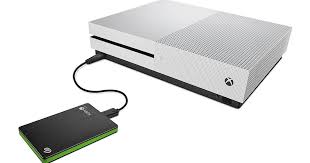Ever find yourself staring at your computer screen, contemplating which files to delete to free up space for a new download? External hard drives offer a solution to your storage woes, allowing you to expand your digital horizons.
But how do you choose the right one for your needs? Let’s explore the benefits, capacity options, and security features of these devices to help you make an informed decision.
Benefits of External Hard Drives
When it comes to expanding your storage options, external hard drives offer convenience and flexibility. You can easily increase the storage capacity of your devices by simply connecting an external hard drive, giving you ample space to store your important files, photos, videos, and more. External hard drives are portable, allowing you to carry large amounts of data with you wherever you go. This mobility is especially beneficial for students, professionals, and anyone who needs access to their files on the move.
Another benefit of external hard drives is that they provide a reliable backup solution for your data. By regularly backing up your files to an external hard drive, you can protect yourself against data loss in case of a computer malfunction or virus attack. This added layer of security ensures that your important information remains safe and accessible at all times.
In addition, external hard drives are easy to set up and use. Most models are plug-and-play, meaning you can start using them immediately without the need for complicated installations or configurations. This user-friendly aspect makes external hard drives a practical choice for individuals of all technical skill levels.
Choosing the Right Storage Capacity
To ensure you make the most of your external hard drive, determining the appropriate storage capacity for your needs is key. When selecting the right storage capacity, consider how you intend to use the external hard drive. If you primarily need it for basic file backups or transferring documents between devices, a smaller capacity like 500GB to 1TB should suffice. However, if you work with large media files, such as videos or high-resolution images, or if you plan to use the drive for extensive data storage, opt for larger capacities like 2TB or more.
It’s essential to strike a balance between your current storage requirements and potential future needs. Choosing a capacity that’s too small may lead to frequent data management issues or the need to purchase additional drives in the future. Conversely, selecting a capacity far beyond your needs may result in unnecessary expenses. Evaluate your storage needs realistically to ensure you have ample space for your files without overspending on excessive storage.
Data Backup and Security Features
Considering the importance of safeguarding your data and ensuring its protection, exploring the data backup and security features of external hard drives is crucial.
When selecting an external hard drive, look for ones that offer automatic backup options. This feature allows your data to be regularly and automatically saved, minimizing the risk of data loss.
Some external hard drives also come with built-in encryption capabilities, ensuring that your sensitive information remains secure. Encryption scrambles your data, making it unreadable to unauthorized users.
Additionally, features like password protection provide an extra layer of security, allowing only authorized individuals to access your files.
It’s important to choose a reputable brand known for its data security measures to ensure the safety of your information.
External Hard Drive Connectivity Options
Exploring the various connectivity options available for external hard drives can significantly impact your data transfer speed and overall user experience. When choosing an external hard drive, consider the connectivity options that best suit your needs.
USB 3.0 is a common choice, offering faster data transfer speeds compared to USB 2.0. If you require even speedier transfers, Thunderbolt connectivity might be the way to go, providing blazing-fast speeds for large file transfers or video editing tasks. For those seeking versatility, a drive with both USB and Thunderbolt ports could be a valuable investment.
Another connectivity option to consider is eSATA, which can deliver faster data transfer rates than USB connections. However, eSATA ports are becoming less common on modern devices. Additionally, some external hard drives offer wireless connectivity options, enabling you to access your data without the need for cables. Remember to check your device’s compatibility with different connectivity options before making a purchase to ensure seamless integration into your setup.
Tips for Maximizing Storage Efficiency
Maximize your storage efficiency by organizing files into specific folders based on categories or usage frequency. By creating separate folders for documents, photos, videos, and other file types, you can easily locate and access your data when needed. Consider further organizing these main folders into subfolders for even more precise organization.
Another tip for maximizing storage efficiency is to regularly declutter your external hard drive. Delete any duplicate or unnecessary files to free up space and keep your storage organized. You can also consider compressing large files to save space without losing any data.
To optimize storage efficiency, it’s essential to back up your external hard drive regularly. This ensures that your important files are protected in case of drive failure or data loss. Utilize cloud storage or another external hard drive to create backups of your most critical data.
Lastly, consider utilizing software tools that help manage and optimize your storage space. These tools can assist in identifying large files, organizing data, and maximizing the available storage on your external hard drive. By implementing these tips, you can make the most of your storage space and keep your files well-organized.
Conclusion
Overall, external hard drives offer a convenient solution for expanding your storage capacity and keeping your important data safe and secure.
By choosing the right storage capacity, utilizing data backup and security features, and exploring different connectivity options, you can maximize your storage efficiency and simplify your digital life.
Don’t let limited storage space hold you back – invest in an external hard drive today and unlock endless possibilities for storing and accessing your files.
